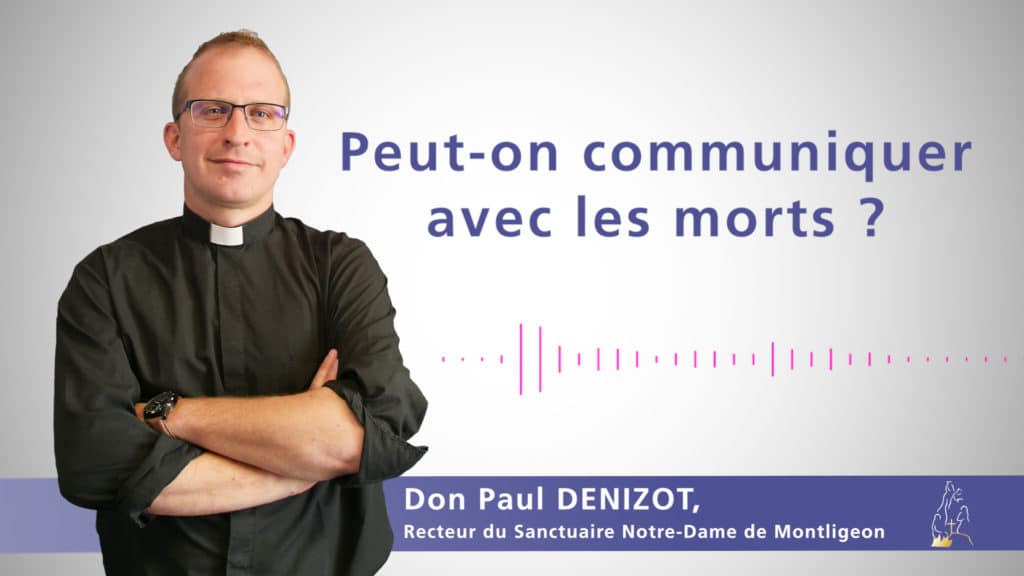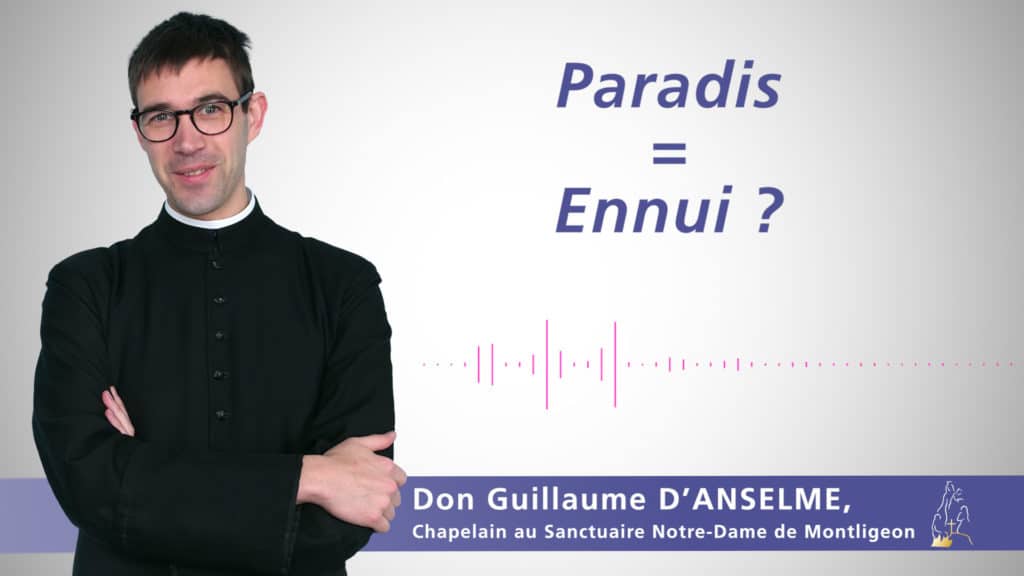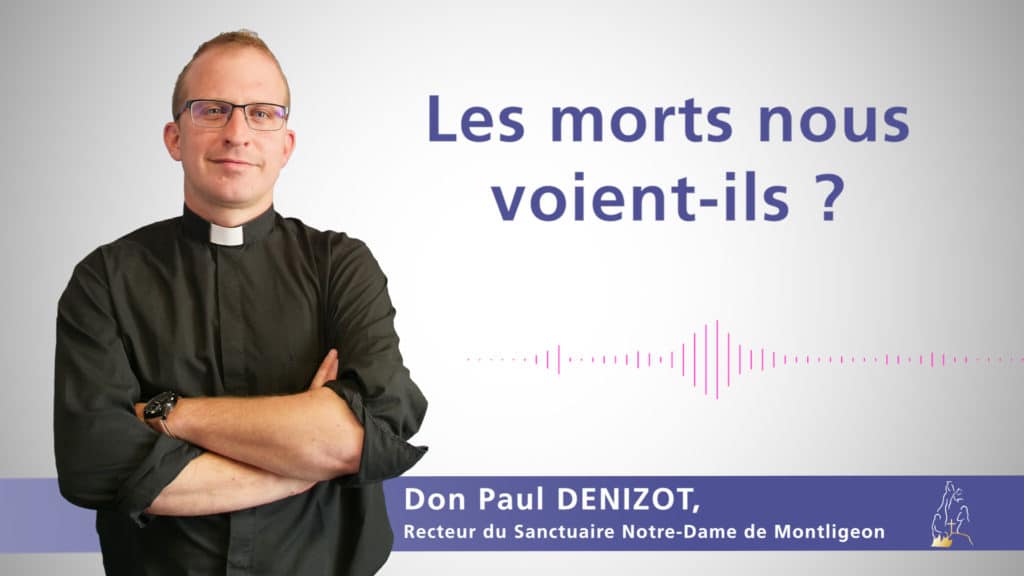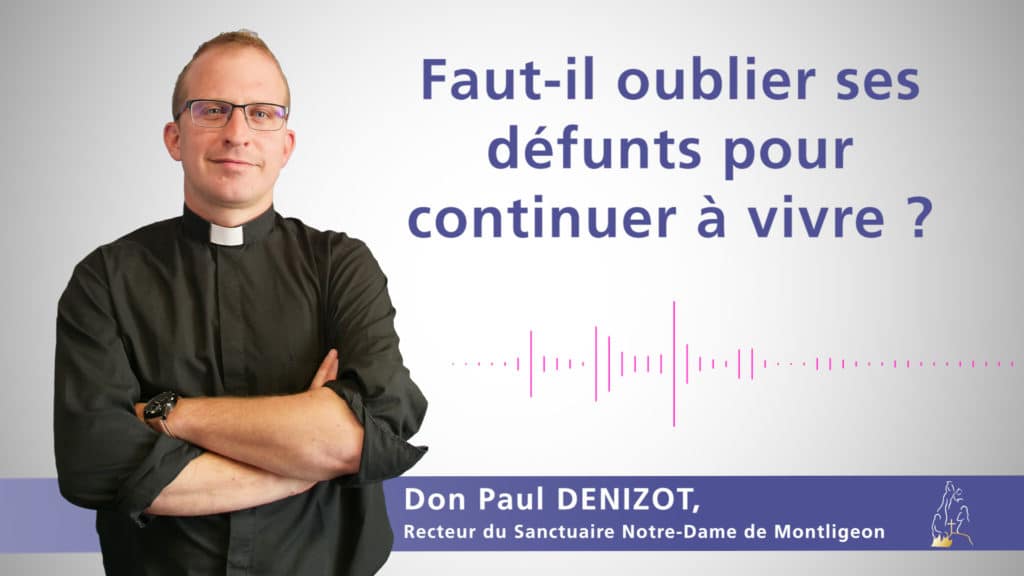One day or another, one gets confronted to a loved one’s demise, whether young or old, be it due to the natural end of one’s life, or to illness, a tragic accident, suicide, etc. Death leaves one grieving and moreover, for the bereaved, mourning even seem impossible at times. What Christian approach and what hope when faced with the harsh separation ? Can one truly overcome and emerge from mourning?
The shrine of Our Lady of Montligeon, world unique center of prayer for the deceased, presents mourning related sessions throughout the year. Affording bereaved people a welcoming comforting break, they allow for counselling, guiding and consolation in light of Christian hope.
At the shrine, we specifically pray for all departed. However, we also tender to bereaved people. Listening and counselling are the core ministry.
All mourning sessions are facilitated by the chaplains of the shrine, priests of the Community of St Martin, communauté Saint-Martin and by the nuns of the New Covenant, soeurs de la Nouvelle Alliance, serving the shrine.
Why come to Montligeon?
The demise of a loved one can be most devastating, and its effects shutter many an aspect of one’s life. Why not come and stay at the shrine of Montligeon. It provides respite of body and soul, and will support you to walk the way to recovery.
Types of mourning-related sessions provided at the shrine:
“Comforting Halts”: 2 days
Mourning & consolation sessions: 5 days
“Comforting Halts” take place over 2 days (2 overnight stays at the shrine). They afford tuitions and guidance on the various phases of the mourning process and on Christian hope. The program schedules individual counselling, partaking in divine office, Mass, and casual exchanges. In relation with the shrine agenda some of these sessions might present a more specific theme, such as mourning a beloved who committed suicide, or subsequently to the demise of a child (in case of unborn children, special dates are regularly programmed at the shrine).
The session tuitions and guidance on the various stages of bereavement, and Christian Hope. The program schedules individual counselling, offering to partake in divine office and Mass, and casual exchanges. The sessions are designed for people who have been bereaved at least for 9 months or longer.
2025-2026
Haltes deuil
Cliquez sur la date de votre choix pour vous inscrire à la session :
de la communauté de la Nouvelle Alliance.
2025-2026
Semaines deuil
Cliquez sur la date de votre choix pour vous inscrire à la session :
Katy, Vania, Sylvie took part in the “Comforting halts” session from 5-7 July 2022.
How is the “Mourning & Consolation” week organized?
Sr. Marie-Aimée, Community of the New Covenant.
Such a session is earmarked by participants. It is indeed a unique moment devoted to reading over one’s mourning experience, and to receiving guidelines on such a devastating period of one’s life, in addition to tuition on death and the afterlife.
The prayer environment prevailing at the shrine, together with the support afforded by both religious communities in charge of facilitating the shrine spiritual activities significantly help alleviate this critical time.
How can you provide the retreatants with a spiritual meaning to their ordeal?
By reading the Scriptures. Indeed they relate numerous mourning situations. The very life of Christ and the Gospel unfold teachings to ponder upon, for one: “I am the resurrection and the life; whoever believes in me, even if he dies, will live, and everyone who lives and believes in me will never die” (John 11,25) .
Describe a typical day schedule
The day starts with attending Lauds with the nuns. Late afternoon, before Vespers, a quiet time before the exposed Eucharist allows for a break to relinquish in silence all that cannot be expressed by words, such as the sheer weight of pain.
Every evening the nuns of the New Covenant then propose participants to partake in a prayer vigil purposely initiated to help participants give sense to their mourning.
In addition, throughout the week, they have free time for prayer, two tuitions a day (on the various phases of mourning, and on death and the afterlife), as well as an individual counselling exchange with a priest or a nun; and last but not least! Coffee breaks and meals which afford them casual exchanges with their session peers.
Death does not put an end
to our relationships!
Dr. Elisabeth Kübler-Ross identified 5 stages relating to death and dying: denial, anger, bargaining, depression, and acceptance. Sister Cecilia would rather speak of “states” because in mourning one does not follow a straight developing course, often one steps forward and back, due to the emotional states one is overwhelmed with at times.
Pilgrims testimonies
The nuns and Our Lady of Deliverance
Whom are these sessions aimed at?
Adults or young people aged 16 and above.
In the midst of utter grief,
joy is possible
It is never too late to do touch one’s departed,
even after their demise
On top of all the spiritual retreats taking place every year, and the November Heaven’s Pilgrimages (during the yearly celebrations devoted to praying for the deceased), the shrine offers various spiritual activities to help you enter the mystery of the communion of Saints.
Enroll your beloved in the Fraternity of Montligeon (Perpetual Mass)
Montligeon is not a mere pilgrimage destination but a vast spiritual fraternity as well, bringing living and deceased people together. People enrolled in the spiritual Montligeon Fraternity benefit from the daily perpetual Mass celebrated to their intent at the Shrine and in various places worldwide by means of its associate members. Funded by Fr. Buguet at the beginning of his charitable endeavours, its members amount nowadays to millions.
Enrolling in the Fraternity of Montligeon witnesses to our belief that bonds of love unite us all, even beyond death. It represents a tangible way of expressing our faith and hope, that we can do good to others, even when death do us part.
Saying “Thank you” or “Forgive me”
to a deceased
We hope to meet again with all our loved ones! Death is separation. Bonds seem severed, once and for all. Yet, by faith, we enter into a new type of relation with our deceased, that of a deep spiritual communion, nurtured by our prayer and anchored in our faith of being one day reunited together. In Montligeon, the proposed practical gesture to say “Thank you” or “Sorry” to one’s deceased seeks to tangibly manifest our faith in the effective communion of Saints.
The cards are freely available at the shrine, or for downloading here under. Fill it in, and return it to the shrine, we will deposit it in the “Petitions box” beneath the statue of Our Lady of Deliverance, at the shrine basilica.
Praying with Montligeon,
whilst in mourning
Join the shrine prayer while remaining at home
To help you accompany a loved one dying without the opportunity of your being present, or to support you through with experiencing bereavement and having to remain away from the funerals, the shrine of Montligeon proposes two booklets of prayers, for private individual, or family use.
To download our special prayer booklets, click on button below and choose from our (free) downloads page:
4 podcasts on eternal life
Throughout the year, the shrine chaplains try and answer questions on death and the afterlife, by means of free short and accessible audio podcasts to be downloaded on playlist Youtube.

Communicating with the dead?

Heaven = boredom?

Can dead people see us?

continuer à vivre ?
Should one forget one’s deceased to be happy?
Articles & Testimonies
Parler de la mort et du deuil à ses enfants (Speaking to one’s children about death and mourning)
Parents d’un enfant qui n’a pas vu le jour : le deuil impossible ? (Parents of an unborn child: impossible mourning?)
Une chapelle pour les tout-petits défunts (At the shrine, the chapel devoted to unborn babies and deceased infants)

